Hope Solo. It's a complicated name, punctuated with controversy. Like the taste of cilantro and the two-party system, Solo is a topic steeped in deep division. Now, a new film about the legendary former goalkeeper of the U.S. Women's National Soccer Team endeavors to illuminate the woman beyond the headlines.
"Hope Solo is undeniably the best goalkeeper in the history of U.S. soccer, man or woman."
"Hope Solo vs. U.S. Soccer," the latest installment in Netflix's "Untold" anthology documentary series, seeks to challenge the greater public's understanding of the beleaguered soccer player. First came Solo's misdemeanor assault charges in 2015 after an altercation with family members. Then, the once-premier goalkeeper of U.S. Women's soccer suffered a career-killing blow when the USWNT's governing body, the U.S. Soccer Federation, suspended her and terminated her contract in 2016. The reason was chalked up to comments Solo made about Sweden's team following the U.S. final match against the country at the 2016 Summer Olympics in Brazil. Solo, somewhat of a league firebrand, had called the Swedes "cowards" while speaking about the team's style of play in a press conference after the game.
But according to the film, director Nina Meredith and Solo herself, that career-altering decision stemmed from Solo's staunch and vocal stance in demanding equal pay from the Federation, an organization that legal counsel and film participant Rich Nichols refers to as "draconian."
"When her career ended by U.S. soccer and not by her own accord, that was incredibly difficult for her and a very difficult period for her," Meredith told Salon. "But I believe that's possibly one of the reasons she did sit down with us, to reclaim some of her narrative and get some closure."
Closure in Solo's life isn't isolated to soccer alone, either. For all her woes on and off the field, (including a highly publicized DWI arrest in 2022), perhaps the most revelatory aspect of "Hope Solo v.s. U.S. Soccer" is the player's past. Her complicated family life largely centered around her father, a mysterious man with two identities and two families who spent much of his later life living in the woods in and around where the Solo family lived in Washington state. As the documentary shows, the volatility that culminated in Solo's ousting from her professional career ultimately began years earlier, in her personal life.
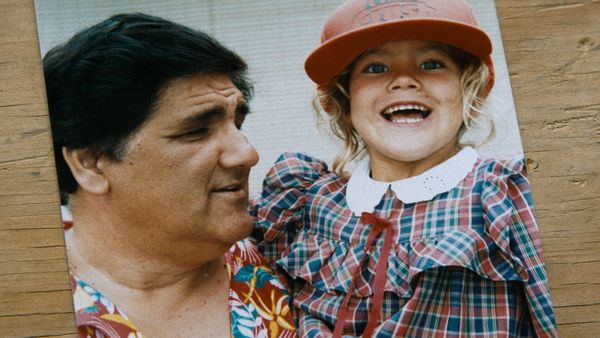 Untold: Hope Solo vs. U.S. Soccer (Netflix)Now, Solo lives with her husband and twins in rural Asheville, North Carolina, where Meredith says she "found a sense of peace and closeness to her father."
Untold: Hope Solo vs. U.S. Soccer (Netflix)Now, Solo lives with her husband and twins in rural Asheville, North Carolina, where Meredith says she "found a sense of peace and closeness to her father."
"I think they wanted to get away from it all," Meredith says. "To cancel out the noise and to just start focusing on what really matters for her now, which is her family and being a mother."
Check out the interview with Meredith, where she elaborates on Solo's trailblazing fight for equity in professional sports, and why she may not have faced as much public and professional scrutiny had she been a male athlete.
The following interview has been lightly edited for length and clarity.
What would you say is so compelling about Hope Solo that it warranted a documentary about her?
Oh man, I'm not sure where to start. Hope Solo is undeniably the best goalkeeper in the history of U.S. soccer, man or woman. I think we know that if we followed her career — her name was always in the headlines, she always had a spotlight on her — and I think a lot of people judged her or had a preconceived notion based on what the headline stated. There were a lot of controversies that overshadowed her greatness as a goalkeeper, so we wanted to tell this story because people don't know the Hope Solo behind the headlines. There's a really complicated and beautiful story behind the headlines and there's a lot more depth to her and her backstory, and we just felt like it would be a great episode in "Untold's" franchise.
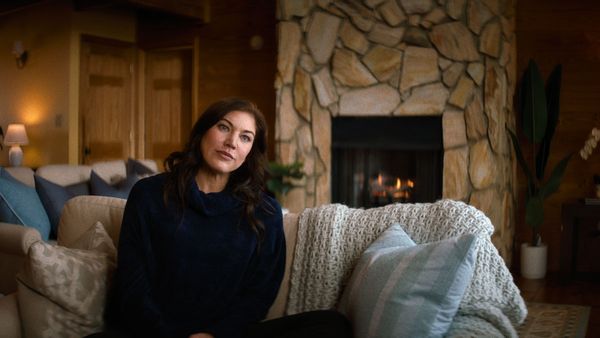 Untold: Hope Solo vs. U.S. Soccer (Netflix)How willing was Hope to do this project, and what did you do to make her feel heard and more open?
Untold: Hope Solo vs. U.S. Soccer (Netflix)How willing was Hope to do this project, and what did you do to make her feel heard and more open?
"Her name is Hope Solo. You have a lot of hope when she's in the goal, but ultimately, she is solo."
She was hesitant at first, for sure. She has not sat down to do a documentary or interview, I believe ever or in a very very long time since her career was ended in 2016. So I think Hope ultimately wanted to — you'd have to ask her — but I believe she wanted to participate to get a sense of closure and also to tell people her side of the story. Hope is a trailblazer, especially when it came to the fight for equal pay and that's something not many people know or understand. So I think she really wanted the opportunity to sit down and share her perspective and her truth. It was for sure difficult at times for her, but I think ultimately she was able to share what she wanted to.
The U.S. women's soccer team just won their first Olympic gold medal in 12 years. What does it mean to you to have this film drop now, and have you spoken to Hope about how she feels about that?
I think having the documentary drop right now is incredibly timely. There's been a lot of progress in women's sports and in women's soccer, but there's also — from Hope's perspective — a lot more that people don't know that's going on behind the scenes. And so I think it will have a strong reaction. I think women's soccer has come a very long way, especially when it comes to gender equity. But there still can be a lot more done in the sport.
As we're talking about pay equality, it's a cause that Hope champions. The economics of pay in professional sports had been an ongoing conversation, if you look at conversations around WNBA standout rookie Caitlin Clark, for example. Do you think Hope's position as a so-called pariah of the U.S. women's national team helps or hinders her mission to see equal pay enacted?
I think I'm going to answer that with, you have to watch the documentary to hear her perspective. It's a really complicated subject matter, and again, with Hope, there's a lot more to the headlines that you see and read. And I hope people can have a new perspective on Hope, when it comes to pariah, after watching this documentary. I believe people will have a little bit more empathy towards what she went through.
At one point in the film, journalist Roger Bennett refers to goalkeeping as a "deeply lonely" soccer position. At several points in the film Hope is described by close friends and coaches as lonely, as a result of her volatile upbringing and what transpired professionally. Can you speak about that?
Hope went in with great big dreams to be the best goalkeeper in the world, and she thought she was reaching that dream in her career. In 2007, when she was benched [at the World Cup in China] ultimately for Brianna Scurry resulted in a lot of that trust and sisterhood being broken for Hope. So I think she retreated, as she states in the documentary. She went to a very lonely and dark place and it has taken her many, many years to face some of these women, face the U.S. Soccer Federation. And as you see in the film, it culminates with her being finally inducted into the Hall of Fame. But you know, her name is Hope Solo. You have a lot of hope when she's in the goal, but ultimately, she is solo.
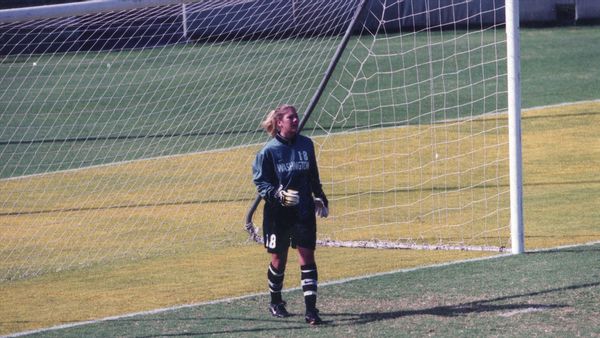 Untold: Hope Solo vs. U.S. Soccer (Netflix)Hope has no swan song to close out her career after being suspended and having her contract terminated in 2016. This was obviously hugely affecting for her. After speaking with her extensively how would you say she views this unfortunate situation now, nearly 10 years on? At one point in the film, she comments on how after it all went down, she was free of all of this red tape and bureaucracy, and she's able to go out in the world and speak her truth.
Untold: Hope Solo vs. U.S. Soccer (Netflix)Hope has no swan song to close out her career after being suspended and having her contract terminated in 2016. This was obviously hugely affecting for her. After speaking with her extensively how would you say she views this unfortunate situation now, nearly 10 years on? At one point in the film, she comments on how after it all went down, she was free of all of this red tape and bureaucracy, and she's able to go out in the world and speak her truth.
Absolutely, I think that quote from the film really summarizes it. When her career ended by U.S. soccer and not by her own accord, that was incredibly difficult for her and a very difficult period for her. But I believe that's possibly one of the reasons she did sit down with us, to reclaim some of her narrative and get some closure. Ultimately she was inducted into the Hall of Fame last year in 2023 and I believe that also put a period at the end of the sentence. So she's letting go. She's still a trailblazer in the fight for equality and she's continuing to do work for women and the next generation of soccer players as best she can. But I think there is some salt in that wound.
A huge list of Hope's former teammates declined to be interviewed for the film. As her college coach Leslie Gallimore says, "When you support Hope or you stand up for her, you're automatically seen as being in her camp and not in someone else's camp." Can you speak about that?
When I started this project, I thought so many women who have been vocal in the soccer community would hands down participate. I personally called Jill Ellis, Briana Scurry, emailed Carly Lloyd who is her [Hope's] good friend. But we were faced with rejection over and over and over again, until the very last day of filming. I think that was a huge surprise and wake-up call for me as a filmmaker, and also for Hope as the subject in being the central figure of this movie. She thought at least one of her teammates would sit down with us. So it was certainly somewhat of an elephant in the room that we had to address off the bat in the movie because otherwise, I believe viewers would be speculating as to why her teammates are not in the film.
We see footage of Hope's DWI arrest in 2022, but the film doesn't linger on that moment in time aside from Hope acknowledging that she had kind of finally given everyone a reason to hate her. Can you discuss how you went about deciding how much of that incident to show?
It's very uncomfortable footage to watch. It's a very sensitive and difficult subject matter. But when I first sat down with Hope to interview her, I asked the question, "Is there anything off limits?" thinking this might be one of those subjects. And she said no. I believe she wanted to talk about it to take responsibility because all the other controversies off the field during Hope's career were a bit gray. However this was very black and white, and she did take ownership over the terrible incident.
As former U.S. soccer player Michelle Akers observes, if Hope had been a man, the consequences she faced for her comments and general wild-child attitude would have been far less punitive. How would you describe sexism in the world of U.S. soccer and U.S. professional sports more broadly?
Hope's a trailblazer. Hope's very progressive when it comes to the fight for equal pay and other subject matter she finds to be unfair and unequal. She always stuck by her truth and she faced severe consequences for that. But I think there has been incredible movement and progress since Hope's career ended, so we all thought. One of the themes we spoke about with our subjects was Hope was ahead of her time, and would this happen to a man? And often, the answer was no. So it did feel like there was a lot of gender inequity in terms of how Hope was treated versus how a man was treated. There was a big comparison in the media during Hope's career hope to Ray Rice, and I was just incredibly appalled at that footage and those articles because what Hope did is incomparable to what Ray Rice did.
I loved this one quote from her, even though it was coming from a place of frustration, where she says, "We weren't in it for a settlement, we were in it to change the landscape for women across the country, for the rest of time, for the rest of history." You really get that pain and frustration coming through I think this sort of artifice of that settlement being a huge moment of progress when in actuality, as she describes it, it wasn't in the way that she was hoping for it to be.
Absolutely. I think that was my biggest learning, and I hope one of the largest learnings people viewers take after watching this film is that the pay is not equal. It was a settlement with the promise to get there, but from what [legal counsel] Rich Nichols tells us, it was a settlement. It was not a win, and I hope people begin to understand that.
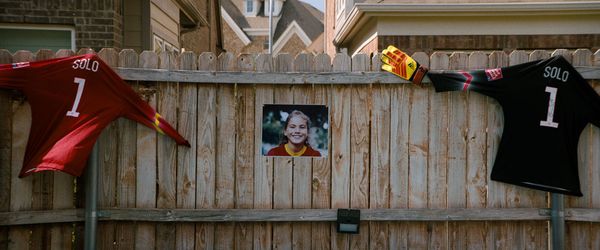 Untold: Hope Solo vs. U.S. Soccer (Netflix)I loved the inclusion of "Daughter" by Pearl Jam near the end of the film when things feel pretty uplifting. My parents are huge Pearl Jam fans. Why did you choose that specific song?
Untold: Hope Solo vs. U.S. Soccer (Netflix)I loved the inclusion of "Daughter" by Pearl Jam near the end of the film when things feel pretty uplifting. My parents are huge Pearl Jam fans. Why did you choose that specific song?
I think it felt like a good place, a good soundtrack to mirror the closure and where Hope is in her current life. It also has, like you mentioned a bit of nostalgic quality, and the film ends with this somewhat full-circle moment from her dad being this free-spirited man who lived in the woods to now Hope who in a way lives a similar lifestyle with her beautiful family.
That was actually my last question, regarding how the film ends on a very poignant note with Hope talking about how living in Asheville makes her feel close to her father who spent much of his life in the woods. Can you elaborate on the decision to end there?
Hope and her family moved shortly after her career ended. I think they wanted to get away from it all — to cancel out the noise and to just start focusing on what really matters for her now, which is her family and being a mother. So we wanted to end on that note. That's often a question we get asked as documentarians: "Where is she now? What is she doing now?" And I think it's pretty clear from that final scene that she has found a sense of peace and closeness to her father.
"Hope Solo vs. U.S. Soccer" is streaming on Netflix.


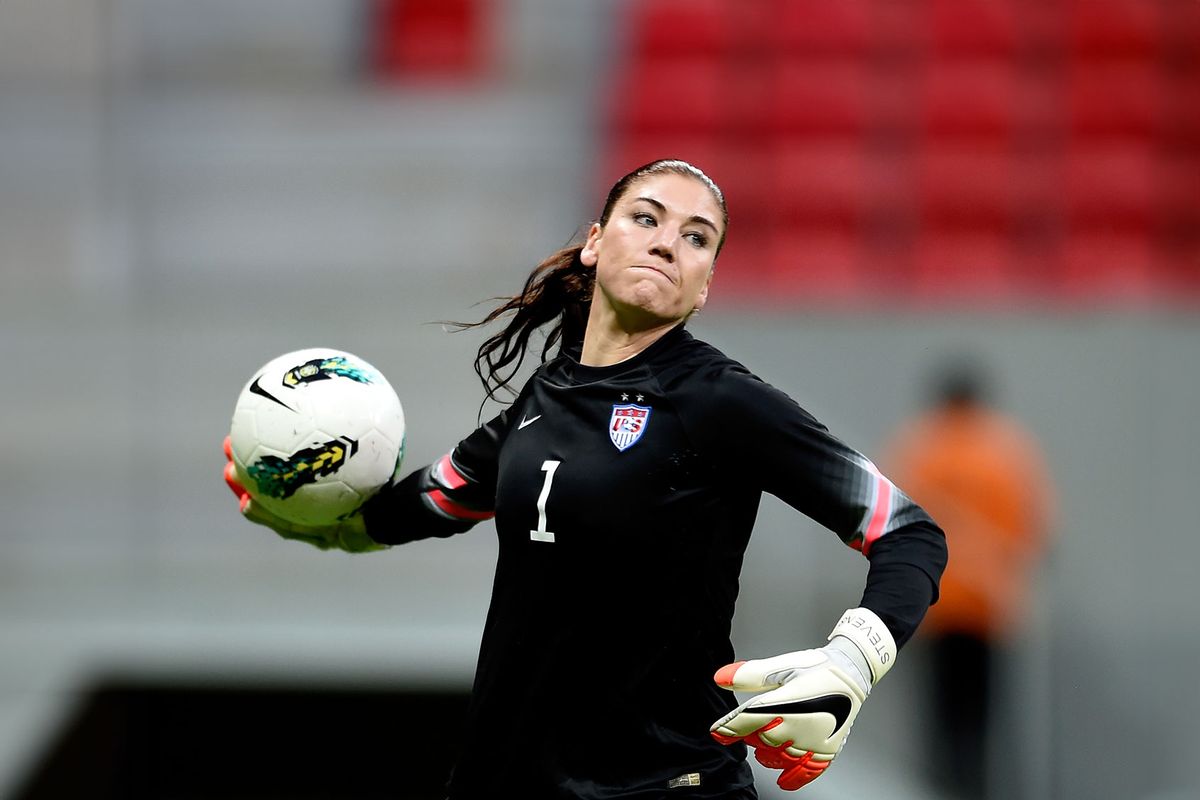
Shares